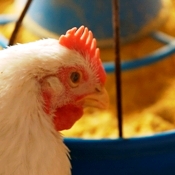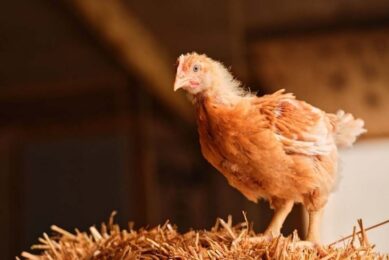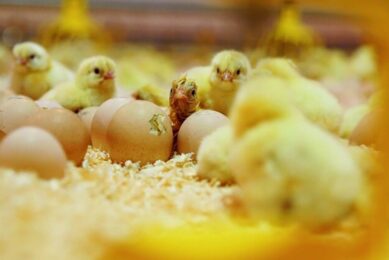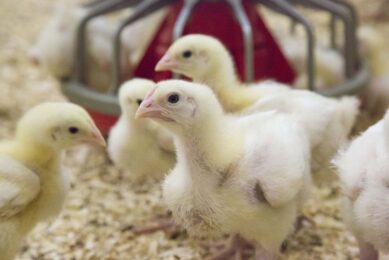Supplementing broiler diets with biodiesel by-products

Glycerine, a by-product of biodiesel production, can be used as a dietary supplement for broiler chickens, according to research by University of Arkansas Division of Agriculture poultry scientists.
Finding new uses for glycerine will become important as biodiesel production increases, said Park Waldroup, poultry nutritionist at the U of A Centre of Excellence for Poultry Science.
“354 million gallons of biodiesel is produced annually in the US, and additional plants under construction that will nearly double production capacity,” Waldroup said. “Glycerine, a carbohydrate molecule that makes up 10 to 12 percent of a typical fat, is a by-product of the manufacture of biodiesel from fats and oils.”
Biodiesel production will soon overwhelm traditional uses for glycerine in cosmetics and other products, so Waldroup and his research group are exploring the value of glycerine as an energy source in broiler diets.
“Glycerine is a pure calorie source that can provide energy to a body for maintenance and growth,” Waldroup said.
A short-term preliminary study showed that chicks up to 16 days of age that could be fed up to 10 percent glycerine without impairing performance. This was followed by a full-term feeding study with chicks grown to market age to evaluate the effects not only on live performance but also on meat quality.
“Diets with 5 percent glycerine supported good performance, but when 10 percent was added the flow rate of the feed was slightly reduced, hampering feed intake,” Waldroup said. “Neither level of glycerine had any adverse effects on meat quality.”
Waldroup said additional research is needed to evaluate quality issues associated with glycerine use and the effects on feed texture and pellet quality.
Join 31,000+ subscribers
Subscribe to our newsletter to stay updated about all the need-to-know content in the poultry sector, three times a week. Beheer
Beheer








 WP Admin
WP Admin  Bewerk bericht
Bewerk bericht